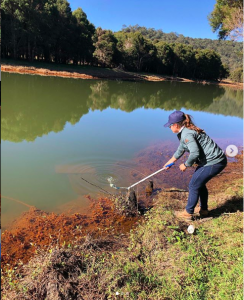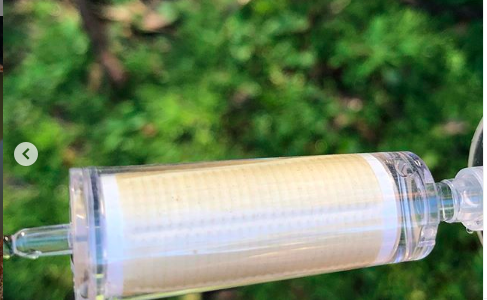Referred to as eDNA, Environmental DNA testing is process that detects species in the environment by collecting samples of DNA that animals leave behind. This can be broken down scats, broken up skin or hair cells, bodily liquids, scales etc. and it can be collected in water samples, soil and a few other ways. It is highly accurate, noninvasive & time efficient, the plus being you don’t have to actually see the animal but you can still find out if it’s there and begin protecting its habitat. Not bad at all!
Cattai Hills Environment Network in partnership with WSU students collected samples across sites in the Cattai and Little Cattai Catchment to find the platypus in the region so that we can work towards their protection. We won’t find results for a few weeks so watch this space!


Photos: Collecting water sample(s), a filter now brown full of eDNA that will be sent to the lab for testing.

